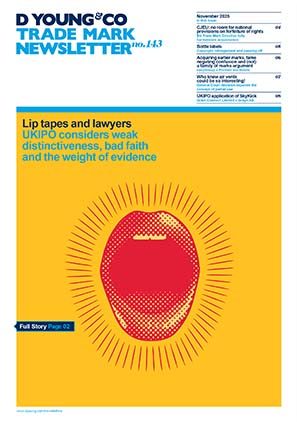Peppa Pig v Wolfoo: IP dispute gets territorial
The UK was found to be the target after the High Court clarified the jurisdiction in a dispute involving internet platforms. The owners of Peppa Pig succeeded in keeping their IP infringement claim in the UK courts after the creators of Wolfoo failed to convince the High Court that Vietnam is a more appropriate jurisdiction. The High Court also clarified procedural issues concerning the validity of service via electronic means.
Background
The owners of the intellectual property rights in the Peppa Pig TV series have brought proceedings against the creators of children’s YouTube show, Wolfoo, for copyright infringement, trade mark infringement and passing off.
However, this decision did not address the infringement proceedings and instead the High Court was faced with two applications. The first was filed by the defendants seeking a declaration that the English courts had no jurisdiction to try the claims because (1) the service was defective and (2) the defendants did not target the UK market. The second application was filed by the claimants seeking a declaration that service on the defendants was not defective, or if it was deemed not be effective, then the claimants sought an order for service by an alternative method.
The challenge to service
Following the pre-action correspondence, the claimants’ legal representative wrote to the defendants’ legal representative to confirm whether they would accept service of proceedings on behalf of the defendants, and whether this could be via email. The defendants’ legal representative confirmed that they did have instructions to accept service and provided two email addresses.
The claimants’ legal representative subsequently served proceedings. The defendants’ legal representative noted that one of the emails had an issue accessing the cloud storage site that stored the annexes to the particulars of claim. Once the issue was resolved, the defendants’ legal representative confirmed receipt of all documents.
A couple of days later, the defendants’ legal representative wrote to the claimants’ legal representative to reject the service of all documents and materials that were submitted by way of email and via links to the cloud storage, on the basis that the claimants had not asked if they had any limitations affecting service.
The court concluded that where a solicitor signals acceptance of service via email without providing any limitations, it is reasonable to assume that there are no limitations out of the ordinary. In particular, the judge noted that the service of the claim form, the particulars of claim and the response pack are distinct from the service of any other materials, such as those provided via the links to the cloud storage. Further, the judge held that in the event that his assessment was incorrect, he would have granted the alternative relief sought by the claimants in their application.
UK as a target
The defendants argued that the Wolfoo videos targeted Vietnam and the USA. However, the following factors, amongst others, were relied on to support the argument that the use was targeting the UK:
- The first defendant operates the sconnect.edu.vn/en website for the Sconnect animation training academy;
- The training academy website includes an article stating that the channel attracts audiences from the UK;
- Screenshots of the YouTube channel demonstrated advertising aimed at UK audiences; and
- The defendants had not added conditions to the YouTube channel to block viewers from countries outside of the USA and Vietnam.
Overall, the judge was convinced that the UK was a target and that the Courts of England and Wales had jurisdiction.
Forum conveniens (convenient forum)
The defendants proposed that Vietnam would be a more appropriate court, relying on the fact that the claimants have litigated in other jurisdictions in the past and that the defendants’ witnesses were located in Vietnam. However, the judge was not convinced that the Vietnam courts would provide a better alternative. In particular, the judge noted that:
- The claimants’ goodwill, copyright and trade marks cannot be protected outside of the UK;
- The claimants conceived and implemented the artistic works in Peppa Pig in England and Wales;
- The claimants’ entities are registered in England and Wales;
- The defendants and the claimants have legal teams acting for them that are situated in England and Wales; and
- There are witnesses situated in England and Wales.
Therefore, the judge ordered the parties to agree directions to progress the case in the UK.
In short
With IP infringements frequently taking place via internet platforms that lack territorial limitations, this case highlights that it is possible for the Courts of England and Wales to be an appropriate forum for cases concerning internationally available content. This is good news for IP owners with strong UK rights who are tackling infringements in an increasingly borderless digital world.
Case details
Jurisdiction: England & Wales
Decision level: High Court
Parties: Entertainment One UK Limited & anr v Sconnect Co. Ltd & ors
Date: 21 December 2022
Citation: [2022] EWHC 3295 (Ch)

